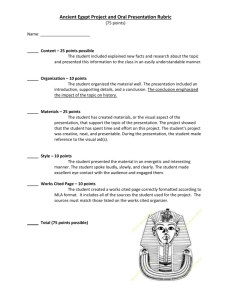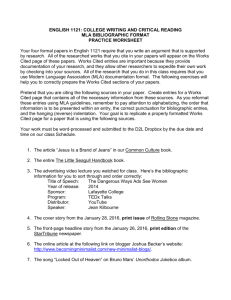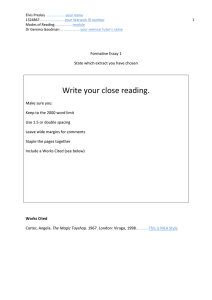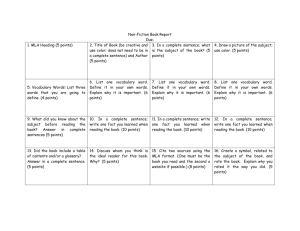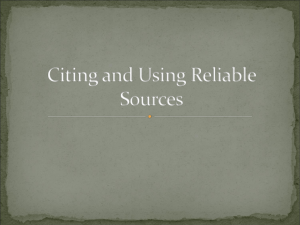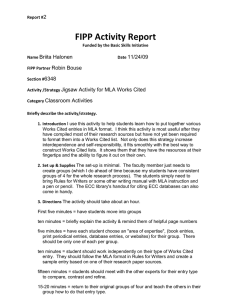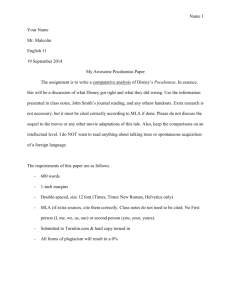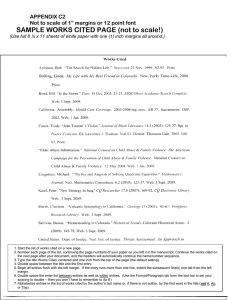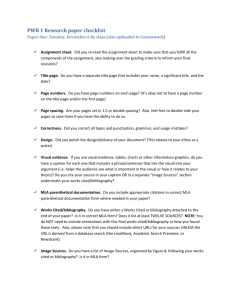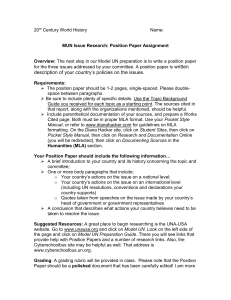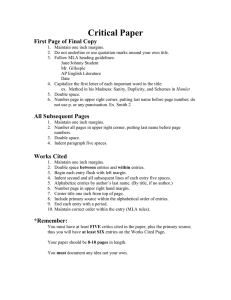MLA BIBLIOGRAPHY FORMAT
advertisement
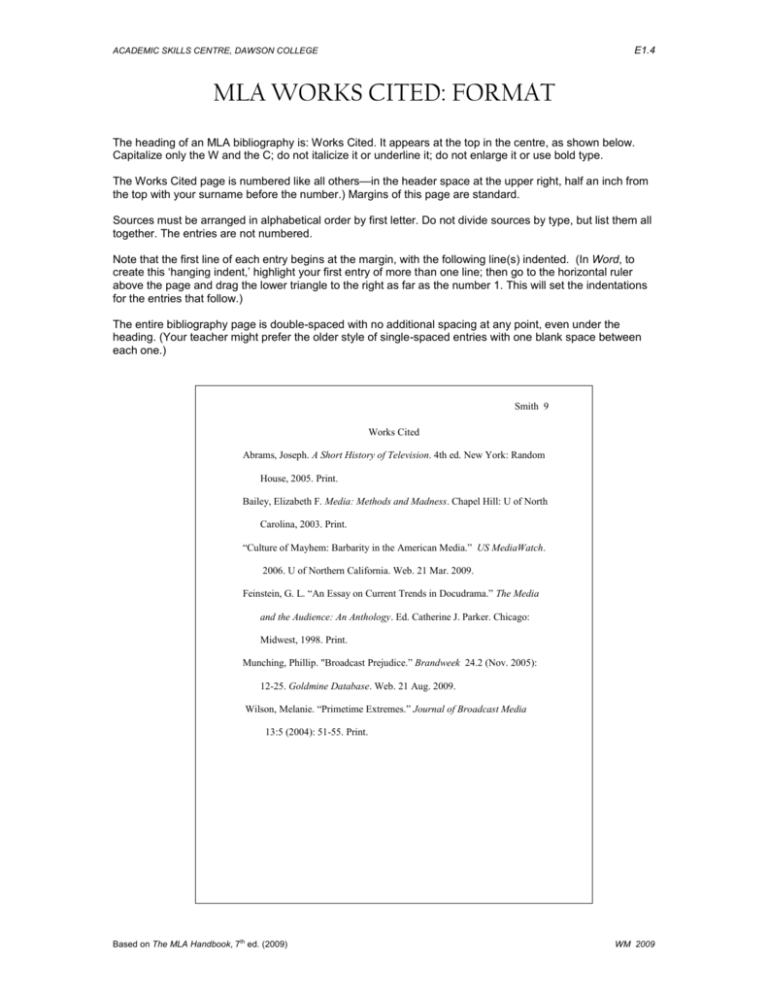
E1.4 ACADEMIC SKILLS CENTRE, DAWSON COLLEGE MLA WORKS CITED: FORMAT The heading of an MLA bibliography is: Works Cited. It appears at the top in the centre, as shown below. Capitalize only the W and the C; do not italicize it or underline it; do not enlarge it or use bold type. The Works Cited page is numbered like all others—in the header space at the upper right, half an inch from the top with your surname before the number.) Margins of this page are standard. Sources must be arranged in alphabetical order by first letter. Do not divide sources by type, but list them all together. The entries are not numbered. Note that the first line of each entry begins at the margin, with the following line(s) indented. (In Word, to create this ‘hanging indent,’ highlight your first entry of more than one line; then go to the horizontal ruler above the page and drag the lower triangle to the right as far as the number 1. This will set the indentations for the entries that follow.) The entire bibliography page is double-spaced with no additional spacing at any point, even under the heading. (Your teacher might prefer the older style of single-spaced entries with one blank space between each one.) Smith 9 Works Cited Abrams, Joseph. A Short History of Television. 4th ed. New York: Random House, 2005. Print. Bailey, Elizabeth F. Media: Methods and Madness. Chapel Hill: U of North Carolina, 2003. Print. “Culture of Mayhem: Barbarity in the American Media.” US MediaWatch. 2006. U of Northern California. Web. 21 Mar. 2009. Feinstein, G. L. “An Essay on Current Trends in Docudrama.” The Media and the Audience: An Anthology. Ed. Catherine J. Parker. Chicago: Midwest, 1998. Print. Munching, Phillip. "Broadcast Prejudice.” Brandweek 24.2 (Nov. 2005): 12-25. Goldmine Database. Web. 21 Aug. 2009. Wilson, Melanie. “Primetime Extremes.” Journal of Broadcast Media 13:5 (2004): 51-55. Print. Based on The MLA Handbook, 7th ed. (2009) WM 2009
